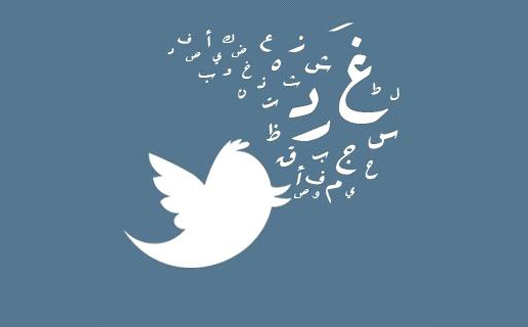One could argue that of all the repercussions from the Arab Spring in 2011 none will be more consequential than the kickstart of a period of phenomenal growth of social media in the Arab World. The pace is astonishing.
Today, there are more than 135 million Internet users across 22 Arab world countries, communicating across 400 million mobile devices. Those numbers represent just .5 percent of the almost 3 billion Internet users around the world. But about 36 percent of the Arab world is online, a number that has been growing at a rapid 20 percent per year. About 71 million of them are on a social network and a surprisingly large number are Saudi.
Apart from the numbers, what does it actually mean if Saudi Arabia has the highest per-capita percentage of Twitter users in the world or that 41% of Saudis on the Internet use Twitter?
Patrick Tucker, Technology Editor for Defense One, offers some insights and they aren’t particularly encouraging for U.S. policy makers. Social media interaction in the region is increasingly conducted in Arabic and resoundingly negative towards the United States.
The most important figure in the study is this: about 45 percent of the Arabic language conversation on Twitter is about the United States and it’s not at all positive. The poster’s position on other topics of relevance to the Arab world, whether they were pro-Assad or anti, for instance, didn’t matter.
Tucker cites a joint Harvard and Princeton study that concluded, “The results are striking. Although the ratio of negative to positive tweets is over 3:1 in both social and political categories, the volume of political traffic is nearly four times as great as social traffic.”
He notes that:
The issue isn’t just that Arab tweets are angry, it’s that they express an understanding of history, current events and reality that is fundamentally different from the U.S. version, showing barriers to communication beyond simple translation, Joshua Keating noted on Slate. Moreover, suspicion of the U.S. runs both deep and broad. “In terms of efforts to improve America’s image in the Arab world, the [Harvard and Princeton] paper contains both good and bad news. Arab Twitter users’ antipathy toward America itself, or Americans, doesn’t appear to be exceptionally hostile. But suspicion and opposition to U.S. foreign policy appear to be so deep and so widely shared, even by those on opposite sides of other contentious issues, that it’s hard to imagine how the U.S. could begin to rebuild trust.”
Interestingly, the Harvard/Princeton study (Anti-Americanism or Anti-Interventionism?
Evidence from the Arabic Twitter Universe) references the persistent conspiracy theories that gain widespread credence in the Arab World.
Dr. Azeem Ibrahim, a Research Professor at the Strategic Studies Institute, US Army War College and Lecturer in International Security at the University of Chicago, commented on this in his recent article for Al-Arabiya.
And just like primitive peoples who saw evil spirits in thunder, sandstorms and drought, everything that is wrong in our countries must surely be animated by some evil spirit behind the illusory veil of politics and the media. These evil spirits bear many frightful names: the West / the CIA / MI6/ Israel / Mossad, or just old Hindu India. But we seem to think that what they want is clear; they want to steal our resources and undermine our way of life.
Regardless of whether conspiracy theories in the region are fabricated or factual, the worldview supporting them helps drive reflexively negative attitudes towards the United States and its policies in the region and elsewhere. The explosion of Arabic language social media fuels this trend.









